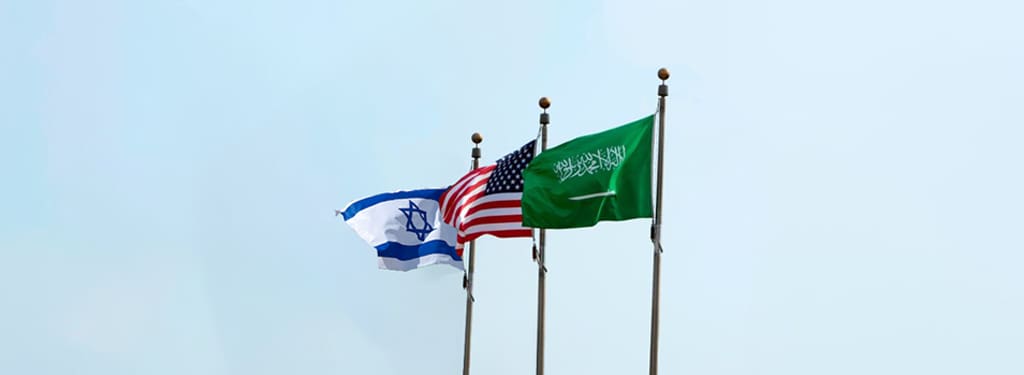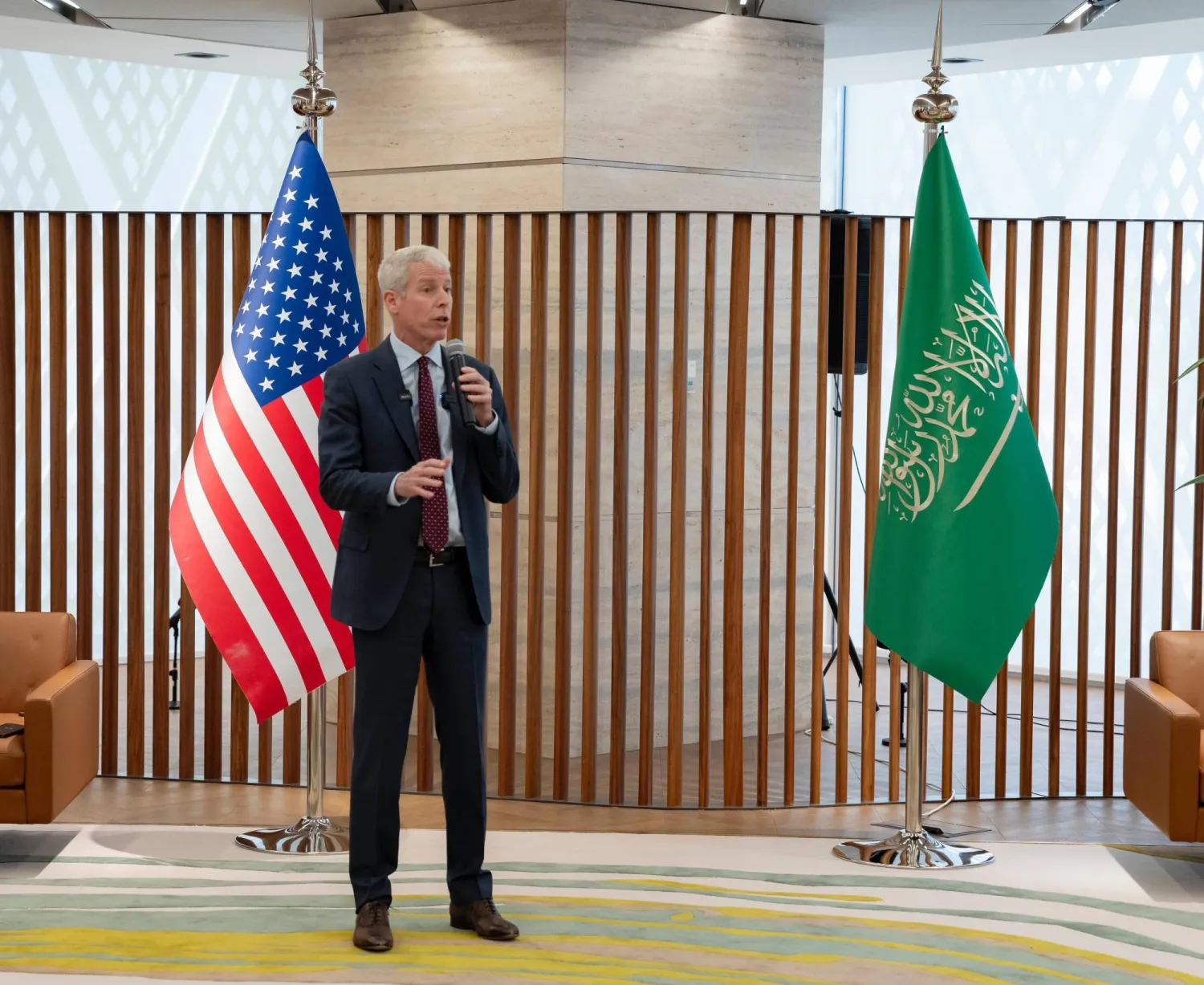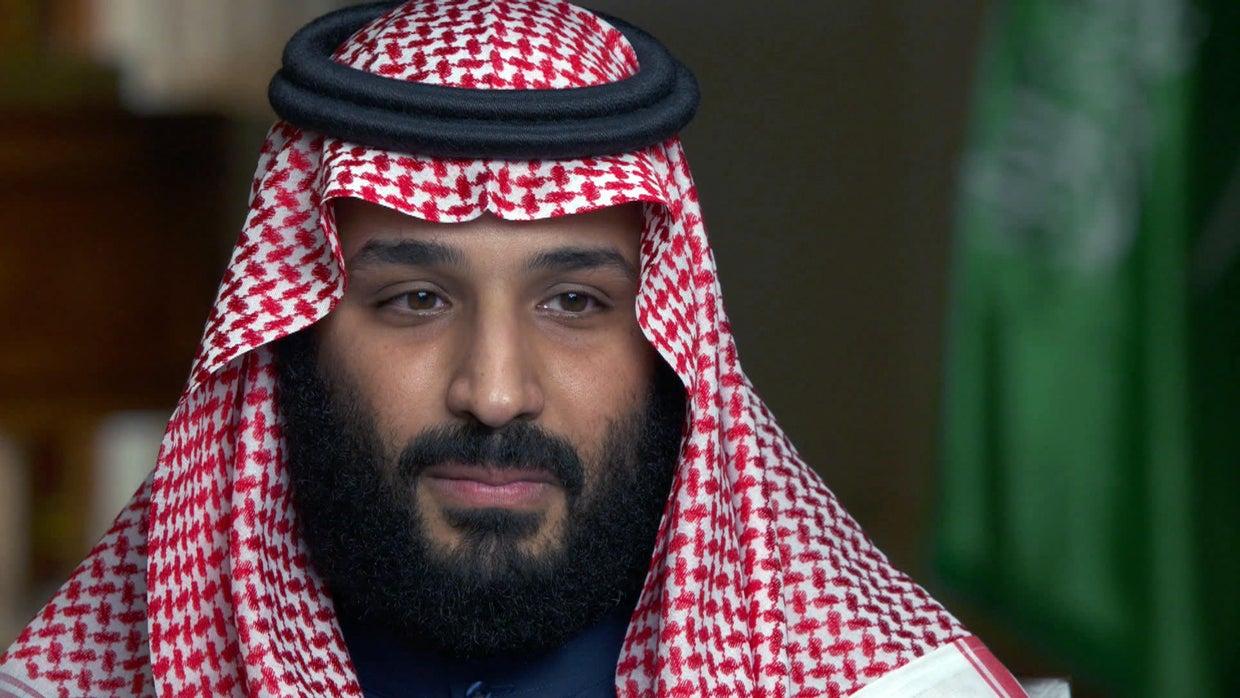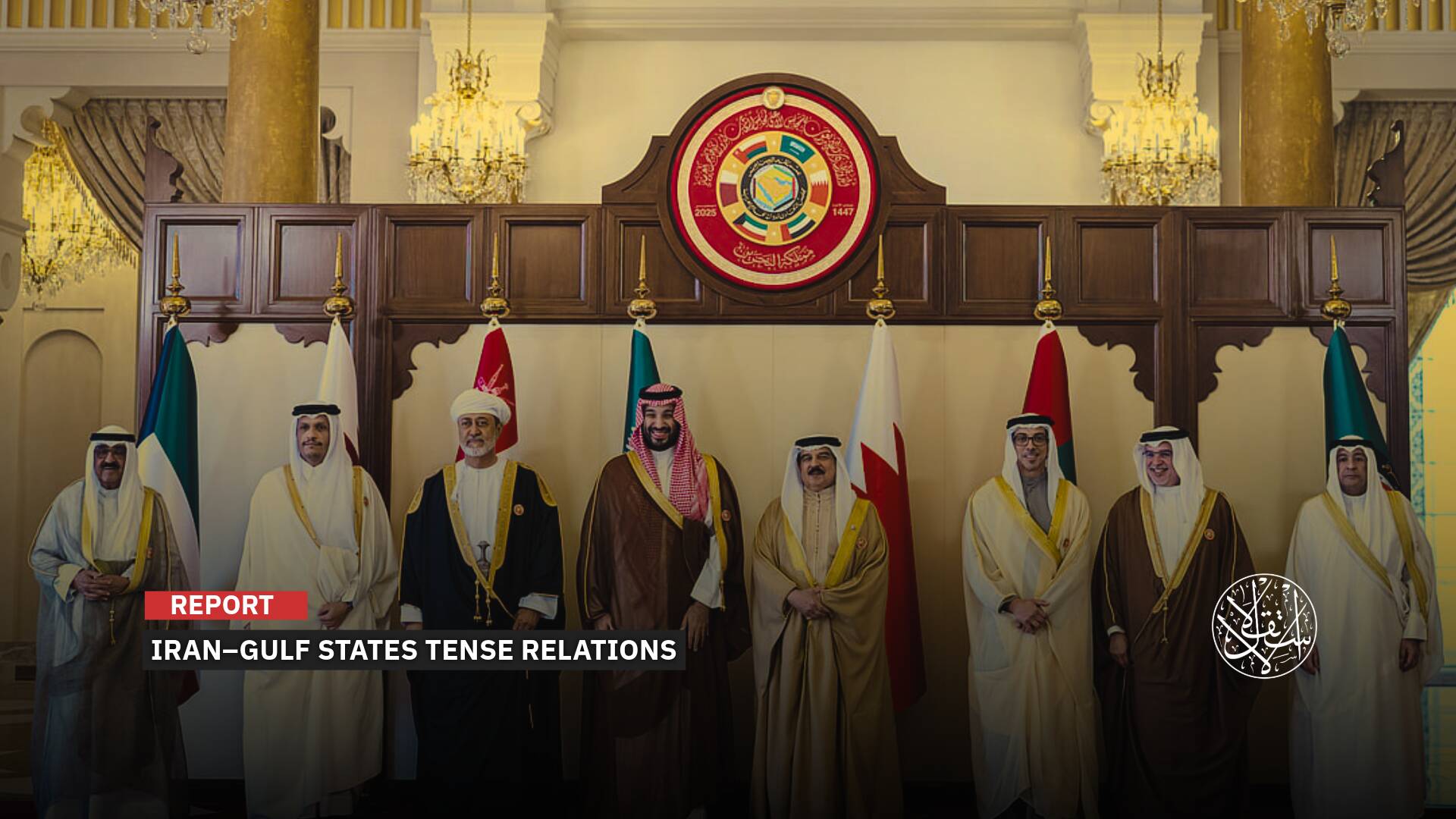Why ‘Israel’ Fears Trump’s Approval of Saudi Uranium Enrichment

“Israel” may walk away empty-handed: no normalization, yet facing the risks of a Saudi nuclear program.
Since Saudi Arabia revealed its plan to build four nuclear reactors in 2014, “Israel,” already a nuclear power, has grown increasingly alarmed.
Despite Israeli expert Arik Greenstein questioning in 2014 why Tel Aviv was worried when “decades of hostility between Saudi Arabia and Israel had ended,” the fears have intensified.
These anxieties reached a peak on April 13, 2025, when U.S. Energy Secretary Chris Wright, speaking from Riyadh, revealed America’s intention to assist Saudi Arabia with its nuclear program, potentially even allowing uranium enrichment.
Israeli Occupation’s primary concern: the possibility of any Arab nation acquiring uranium enrichment capabilities like Iran’s, triggering fears of a future “nuclear deterrent” that could shift the balance of power.
Israeli and American reports suggest that while Saudi Arabia’s program may be “peaceful,” it’s not tied to normalization, meaning “Israel” risks losing both diplomatic gains and the prospect of Saudi nuclear weapons.
The real worry, though, lies in uranium enrichment, a potential gateway to nuclear weapons. This development has sparked anxiety in “Israel,” fueled by fears of changing Arab regimes and the emergence of an anti-Israeli Occupation government.
Even opposition leader Yair Lapid has called on Prime Minister Netanyahu to push the U.S. to enforce a ban on uranium enrichment in Saudi Arabia, highlighting that the concern is widespread, even with the U.S. overseeing the program.

America and Uranium Enrichment
As U.S. President Donald Trump’s visit to Saudi Arabia approaches in May 2025, and with no detailed agreement on normalization and the Gaza war hampering progress, Washington began offering “rewards” to the kingdom in exchange for the trillion-dollar payment it stands to receive.
Due to the lack of consensus on Saudi Arabia’s traditional demand for an independent Palestinian state as a condition for normalization with “Israel,” the U.S. has started to lean toward accepting alternative Saudi demands, such as deploying an “American military shield” over the kingdom.
There are also major arms deals on the table, support for Saudi Arabia’s nuclear program, and even approval of their right to “enrich uranium.”
This shift has raised concerns in Israeli media. On April 13, 2025, The Times of Israel confirmed that Saudi Arabia and the U.S. are working on a deal to develop the kingdom’s nuclear program, without any mention of normalizing relations with “Israel.”
Israeli Occupation’s concern grew not only because the nuclear agreement wasn’t linked to normalization but also because of U.S. Energy Secretary’s statement that the Trump administration would grant Saudi Arabia access to American nuclear technology, and might even allow uranium enrichment.
The agreement, he said, would enable the kingdom to develop a commercial nuclear power industry, though details of the deal are still pending due to concerns over sensitive technology.
However, he was clear on the issue of enrichment, telling reporters: “Are there solutions to that that involve enrichment here in Saudi Arabia? Yes.”

American Oversight Under Section 123
In response to Israeli concerns and Washington's desire to avoid fully opening the door for Saudi Arabia, U.S. Secretary of Energy confirmed that the nuclear deal with the kingdom would be restricted under what's known as Section 123.
This agreement refers to Section 123 of the U.S. Atomic Energy Act of 1954, which regulates the collaboration between the U.S. government, American companies, and countries like Saudi Arabia in developing a civilian nuclear industry.
While the U.S. Secretary confirmed plans to sign a nuclear agreement with Saudi Arabia under Section 123 (granting America oversight of the kingdom’s civilian nuclear program), “Israel” voiced growing concerns.
Israeli analysts and media reports suggest two key reasons for the Israeli unease:
First, as the Secretary noted, Saudi authorities have yet to agree to the requirements of Section 123, which sets nine non-proliferation standards to ensure that Saudi Arabia cannot use the technology to develop nuclear weapons or transfer sensitive materials to other parties.
Second, past negotiations have faltered because Saudi Arabia was reluctant to sign an agreement that would rule out uranium enrichment or the reprocessing of spent fuel, both potential routes to making a bomb.
This concern is heightened by the 2018 statement from Saudi Crown Prince Mohammed bin Salman, who told CBS News that if Iran developed a nuclear bomb, Saudi Arabia will follow suit as soon as possible.
This stance has raised deep concern in “Israel” and among some U.S. lawmakers, who are wary of a potential nuclear deal between the U.S. and Saudi Arabia.
Several members of Congress, from both parties, have previously voiced opposition to such an agreement, including Marco Rubio, now serving as Secretary of State under Trump.
Critics argue that the deal poses significant risks, particularly given the Crown Prince’s repeated assertion that Saudi Arabia would pursue nuclear weapons if Iran does.
Estimates suggest that Trump will sign the nuclear agreement during his May 2025 visit to Saudi Arabia, aiming to secure a trillion-dollar investment, with final details of the deal to be worked out afterward.
Is the Goal a Nuclear Bomb?
On March 19, 2018, Crown Prince Mohammed bin Salman told CBS that if Iran developed a nuclear bomb, Saudi Arabia would do the same.
“Saudi Arabia does not want to acquire any nuclear bomb, but without a doubt if Iran developed a nuclear bomb, we will follow suit as soon as possible,” he said.

On May 9, 2018, former Saudi Foreign Minister Adel al-Jubeir told CNN that if Iran resumes its nuclear program, Saudi Arabia will build a nuclear bomb.
Back in November 2021, former intelligence chief Turki al-Faisal told MSNBC that the prospect of Saudi Arabia acquiring a nuclear bomb was very real.
He said if Iran was indeed advancing toward nuclear weapons, Saudi Arabia would need to take all necessary steps, potentially including gaining the expertise to build a nuclear bomb, to protect itself from such a threat.
What's Behind the Concern?
Israeli expert Yoel Guzansky, a researcher at the Institute for National Security Studies (INSS) at Tel Aviv University, argues that “Israel” is worried about a potential Saudi nuclear deal without any normalization of relations with “Israel.”
In an analysis for Yedioth Ahronoth on April 15, 2025, Guzansky said “Israel” is particularly concerned about the growing ties between the U.S. and Saudi Arabia, especially in the critical nuclear sector, which also impacts “Israel's security.”
He described U.S. Energy Secretary's comments on nuclear cooperation with Saudi Arabia and uranium enrichment as a “wake-up call” for Israeli political leadership.
However, he noted that the proposed Section 123 Agreement might make it harder for Saudi Arabia to develop a military nuclear program in the future.
Earlier, the INSS warned in a study published on September 12, 2024, that U.S.-Saudi relations could grow stronger while Israeli-Saudi normalization takes a back seat.
The report suggested that “Israel” might end up empty-handed: not securing normalization while also facing the risks associated with a Saudi nuclear program.
The study recommended that “Israel” continue opposing Saudi Arabia's independent nuclear fuel cycle, given the strategic risks it poses. They also suggested that “Israel” insist on the “gold standard” nuclear approach, as was done with the UAE. If uranium enrichment for Saudi Arabia becomes acceptable to the U.S., an alternative proposal should be explored.
One such option is the creation of a “regional nuclear fuel bank” on Saudi soil, under international supervision. This would offer several advantages, such as reducing the motivations for nuclear proliferation in the region, which is a major risk of allowing Saudi enrichment facilities.
Former U.S. President Joe Biden had been prepared to help Saudi Arabia develop a civilian nuclear program as part of a broader initiative that included a Saudi-Israeli normalization agreement, aimed at easing the passage of a contentious nuclear deal through Congress.

Israeli Prime Minister Benjamin Netanyahu was considering Saudi Arabia's request to enrich uranium on its soil and allow the kingdom to develop a nuclear program for peaceful purposes, as part of a normalization agreement between the two countries, as The Wall Street Journal in August 2023.
This report coincided with statements from Saudi Crown Prince Mohammed bin Salman, who said that Saudi Arabia was “getting closer” to normalizing relations with “Israel.” “Everyday we get closer,” he added.
However, following the Israeli war on Gaza, Saudi Arabia publicly toughened its stance on normalization, while the Israeli government refused to show flexibility on recognizing a Palestinian state.
As a result of this impasse, driven by the war, which complicated progress toward an agreement that would improve relations between “Israel” and Saudi Arabia, both Riyadh and Washington had to move toward agreements that were originally meant to be part of the normalization deal.
Israeli expert Guzanskyhe said the United States has broad interests that go far beyond the war with Hamas, even its relationship with “Israel,” and the Saudis have an interest in pursuing a path that goes beyond normalization.
In this way, they benefit from a full package of U.S. gains: advanced weapons, technology, artificial intelligence, a security agreement, and nuclear cooperation agreements.
All of this is achieved without paying a price with the Arab public opinion due to strengthening ties with “Israel,” according to the researcher.
The main point of contention in the past revolved around whether the kingdom would import uranium or enrich it on its own soil, a choice that could theoretically allow it to produce uranium for nuclear weapons, raising concerns in “Israel” about a potential nuclear arms race in the region.
Reports suggest that bin Salman is pushing for an agreement to allow uranium enrichment within Saudi Arabia, based on his belief that Riyadh holds large reserves of uranium.
Despite this, exploration efforts so far have only revealed reserves deemed “economically unviable,” according to the International Atomic Energy Agency.
Is It For Trump’s Interest?
When Donald Trump was accused, after his first presidency, of hiding presidential documents in his private office, The Washington Post reported on August 11, 2022, that some of these documents were related to nuclear weapons.
This sparked discussions in U.S. media about a potential link between these documents and Saudi Arabia's pursuit of nuclear weapons, and the possibility that Trump might have helped them in this effort.
On August 25, 2022, Spectator World published an article discussing the connection between Saudi Arabia and the nuclear-related documents Trump had hidden in his villa and later recovered by the FBI.
The article highlighted Trump's attempts to share sensitive nuclear technology with the kingdom and questioned whether Trump had struck a controversial deal with his friends in Riyadh, given the dubious deals between him and bin Salman.
The connection between Trump and Saudi Arabia over the nuclear file dates back to February 2019 when the House Committee on Oversight and Reform indicated that the Trump administration intended to “accelerate” the transfer of sensitive nuclear technology to Saudi Arabia as part of a plan that began during Trump's presidential campaign.
At the time, the congressional investigation found no evidence of “wrongdoing” by the Trump administration. However, the 2019 committee report noted that Trump's actions were ongoing, leading one to wonder whether they ever stopped.

Despite discussions in Washington about Trump and his family's business interests with the Saudis, Trump administration officials justified their actions in a New York Times article on November 22, 2018, stating: “If the United States does not sell the nuclear equipment to Saudi Arabia someone else will — maybe Russia, China or South Korea.”
In response, Spectator World commented, “Trump officials are right: countries like South Korea, France, Russia, and China had been actively pursuing nuclear collaboration with the Saudis, and an American refusal to assist the Saudi nuclear program would have likely resulted in the United States losing market share to foreigners.”
Proponents of the agreement argue that denying America the ability to help Saudi Arabia develop a civilian nuclear program would push Riyadh toward other nations offering such technology under lighter conditions and fewer security requirements, such as China, which would seize the opportunity to enhance its political and security influence in the Middle East.
However, the House Committee report noted that Trump was directly involved in a conspiracy and efforts by the previous Trump administration to develop a nuclear strategic partnership with the Saudis. This relationship was a key element in “Jared Kushner's Middle East peace plan.”
Americans pointed to a May 2022 investment by the Saudi Public Investment Fund, managed by Crown Prince Mohammed bin Salman, which invested a politically-charged $2 billion in Affinity Partners, a company founded by Jared Kushner in trade, management, and politics, according to The Wall Street Journal.
Trump's New Jersey golf club hosted a tournament in August 2022 sponsored by the same Saudi fund, leading to protests from families whose relatives died in the September 11 attacks.
The report states that Trump is known as an opportunistic businessman but raises the question: Would he really steal some of America's most sensitive nuclear secrets to offer them to Saudi Arabia? And why did he hide classified documents in his home?
Sources
- Israel’s fear: Nuclear Saudi Arabia without normalization
- Saudi Arabia, US on 'pathway' to civil nuclear agreement, US Energy Secretary says
- US and Saudis to ink nuclear cooperation agreement; no mention of Israel normalization
- U.S. Revives Talks With Saudi Arabia on Transfer of Nuclear Technology
- The Proposal for a Regional Nuclear Fuel Bank in Saudi Arabia
- FBI searched Trump’s home to look for nuclear documents and other items, sources say
- The Mar-a-Lago raid’s Saudi connection
- US to open negotiations with Saudi Arabia on nuclear agreement, other energy issues
- Saudi Arabia Tries to Stay Out of the Crossfire
- Saudi crown prince: If Iran develops nuclear bomb, so will we











